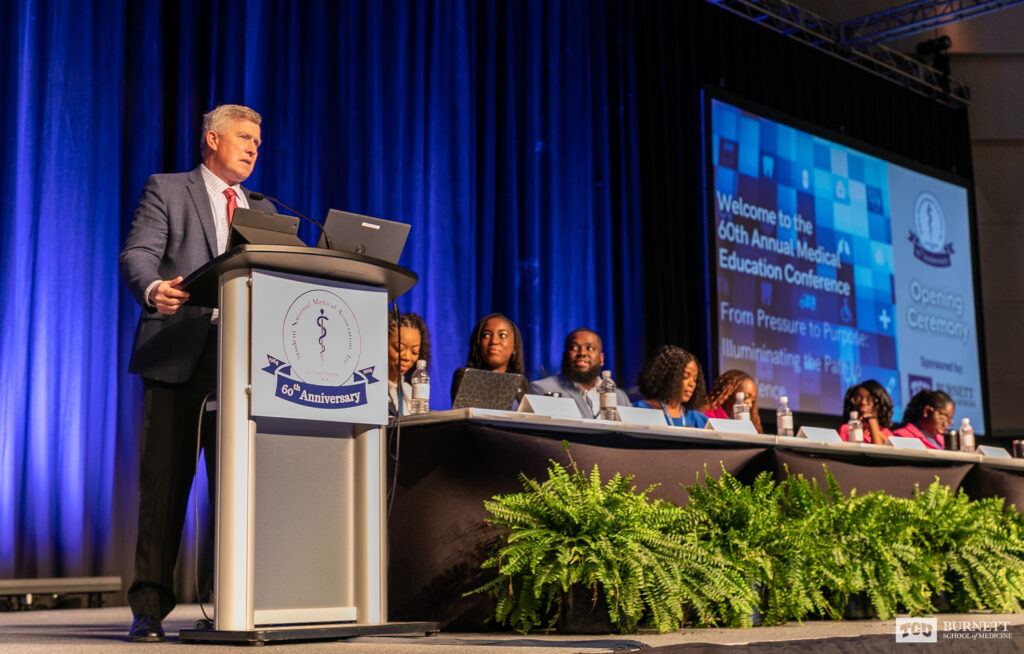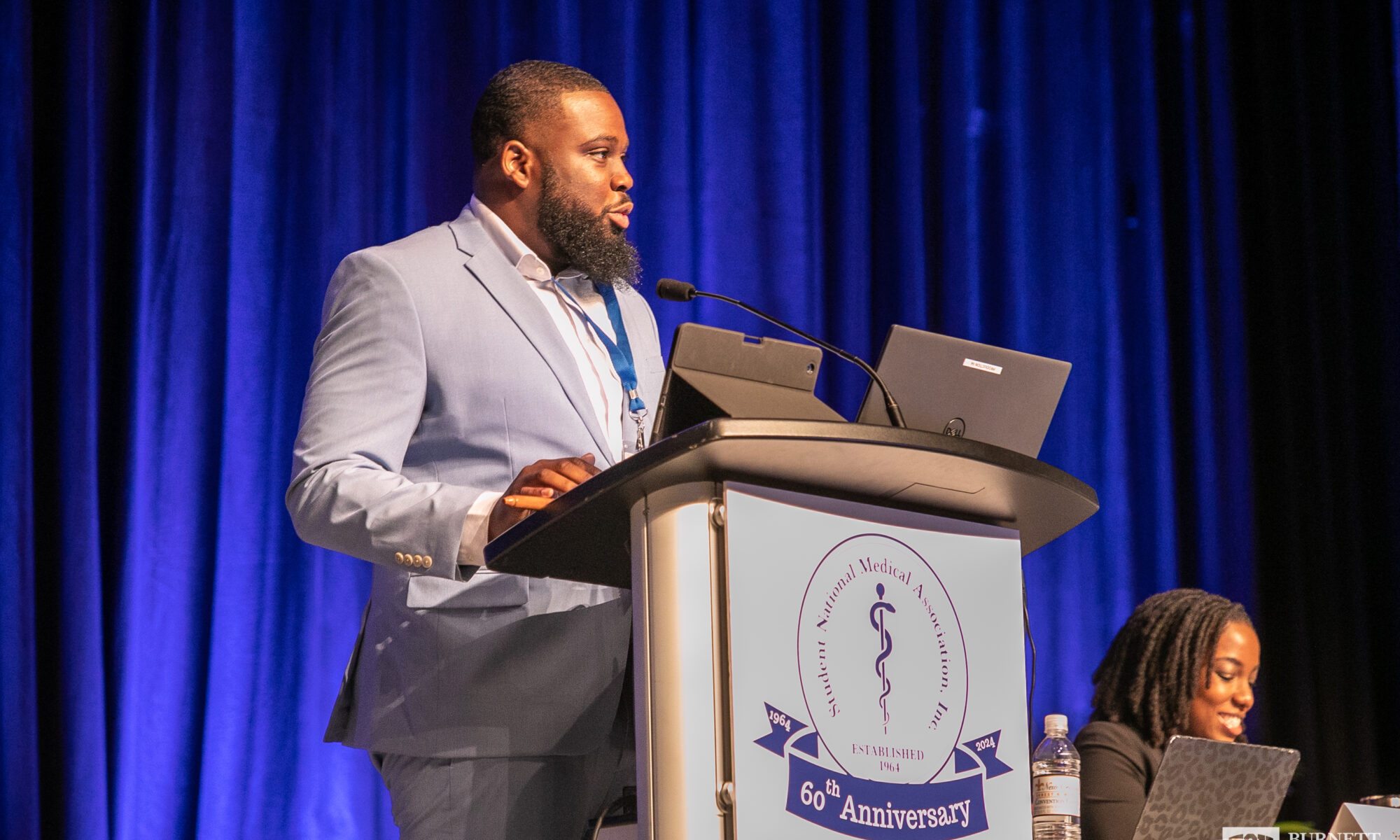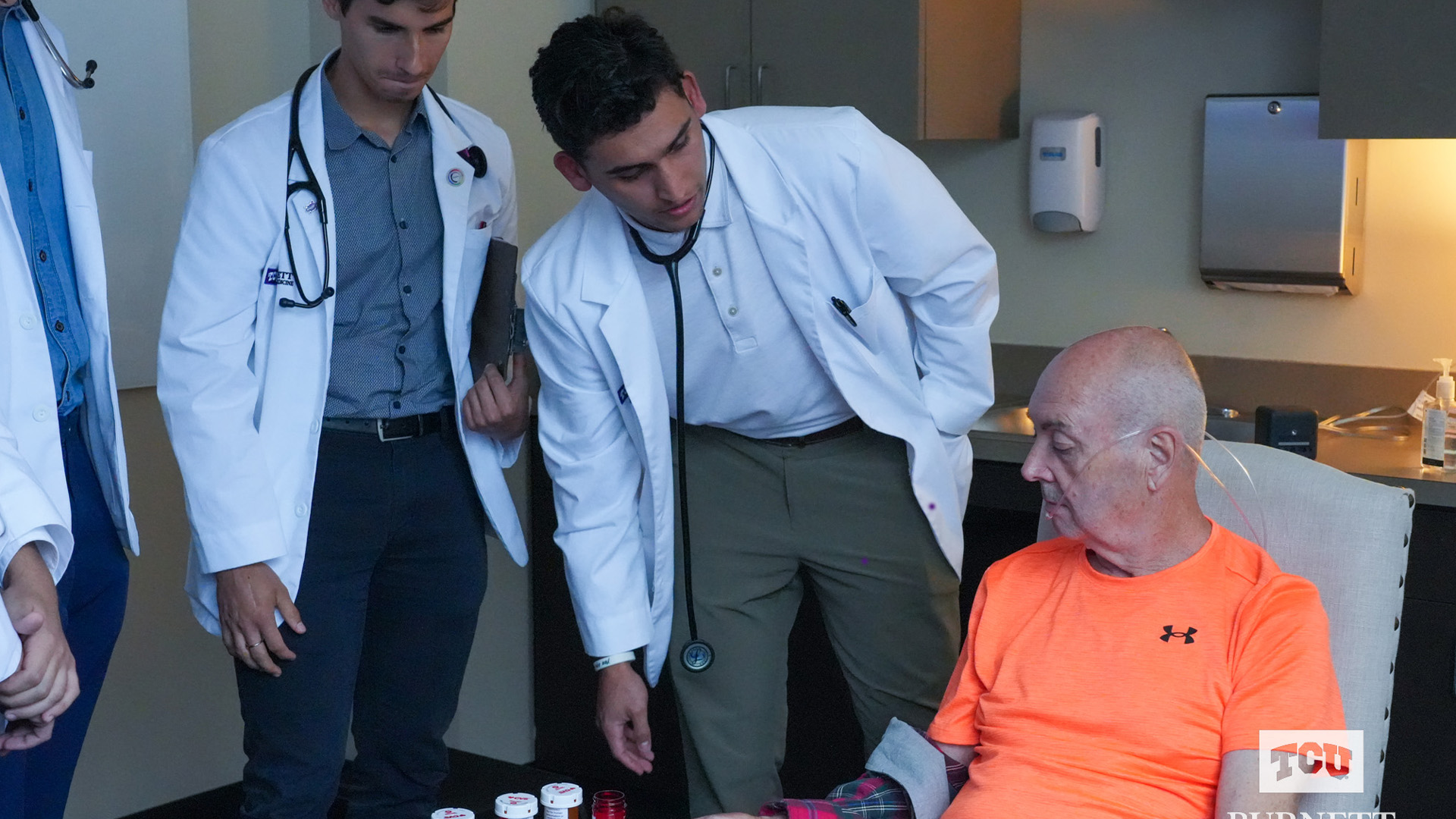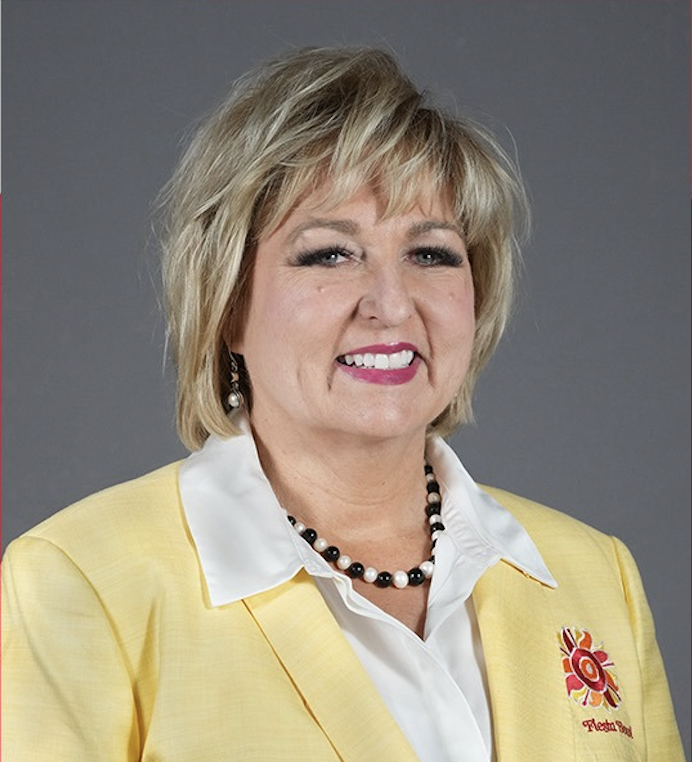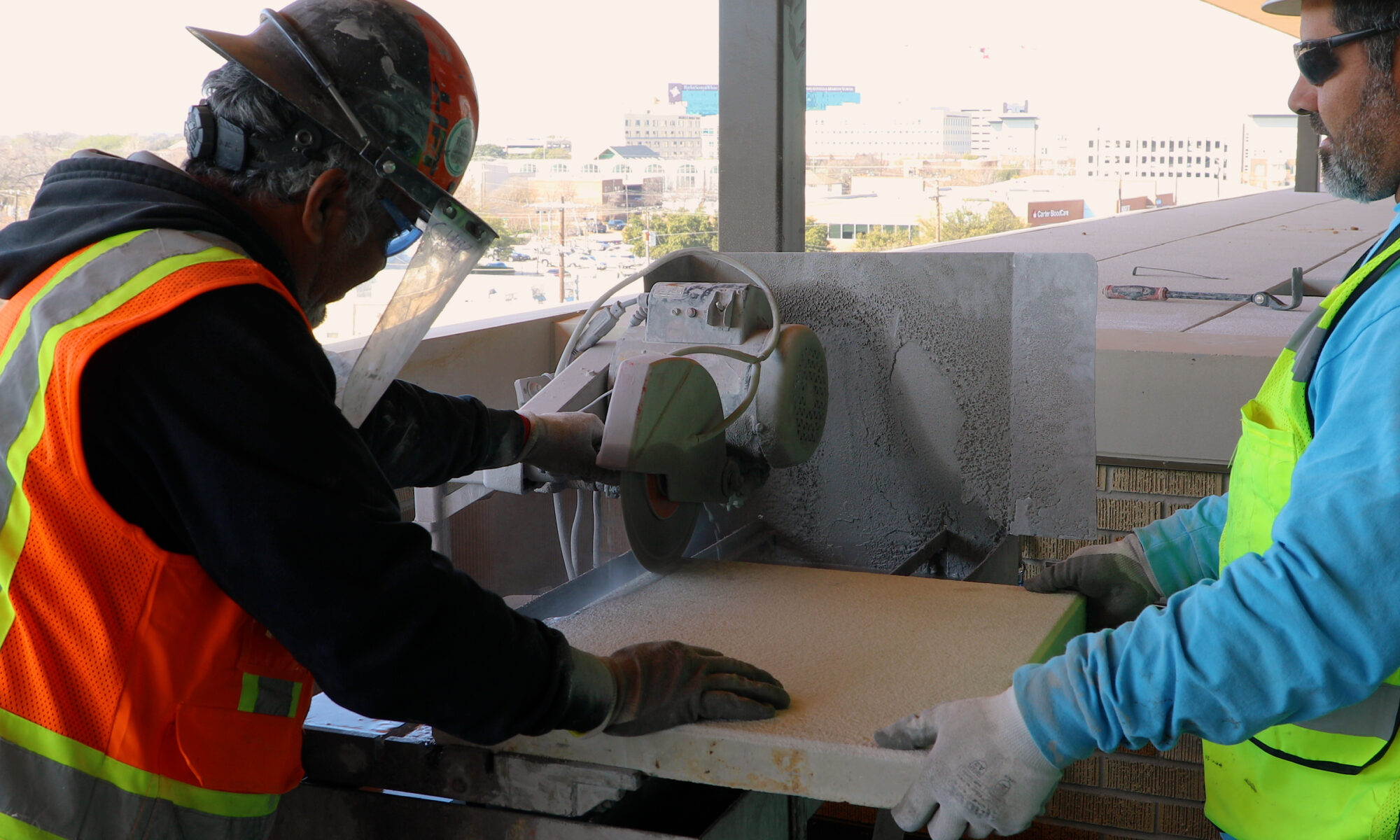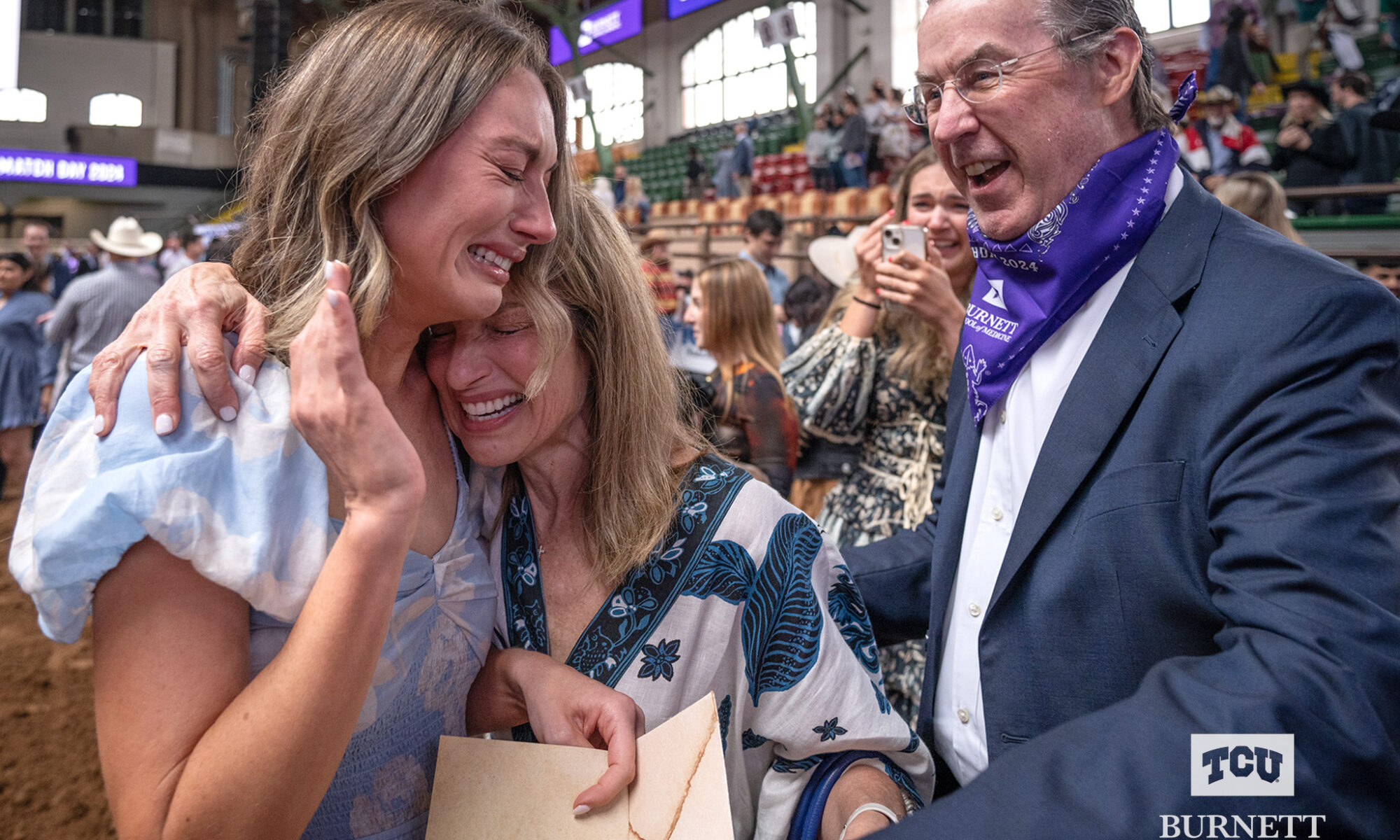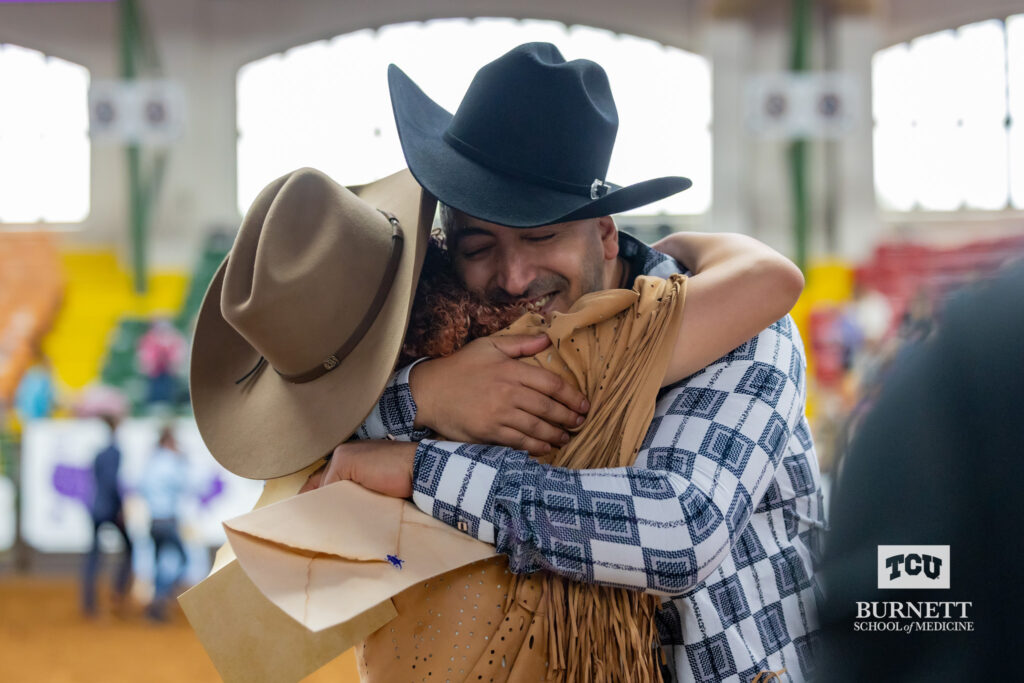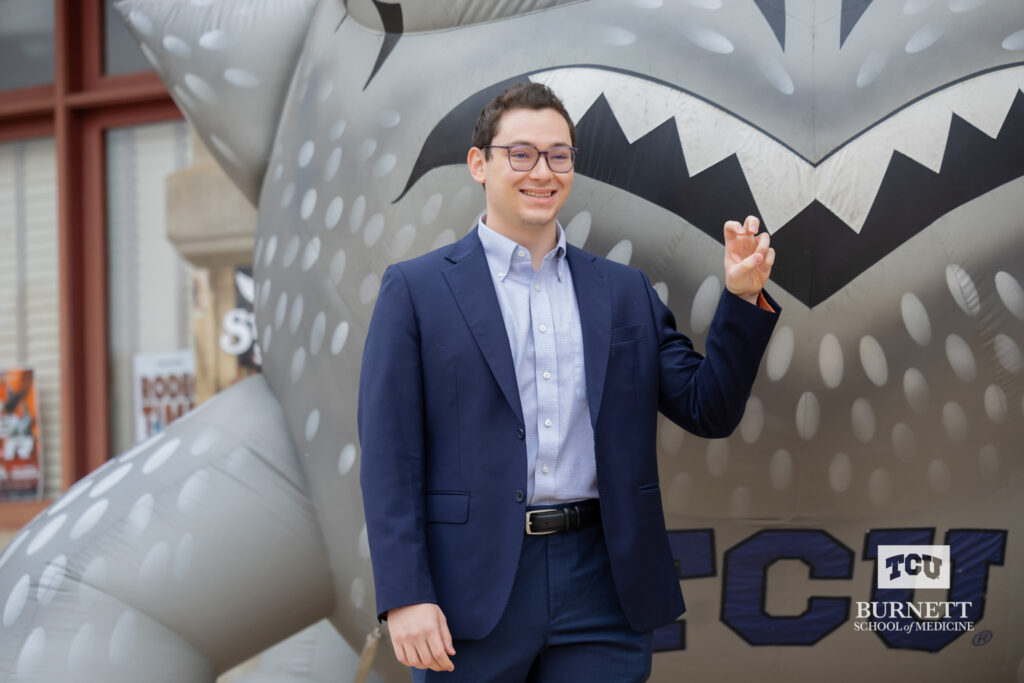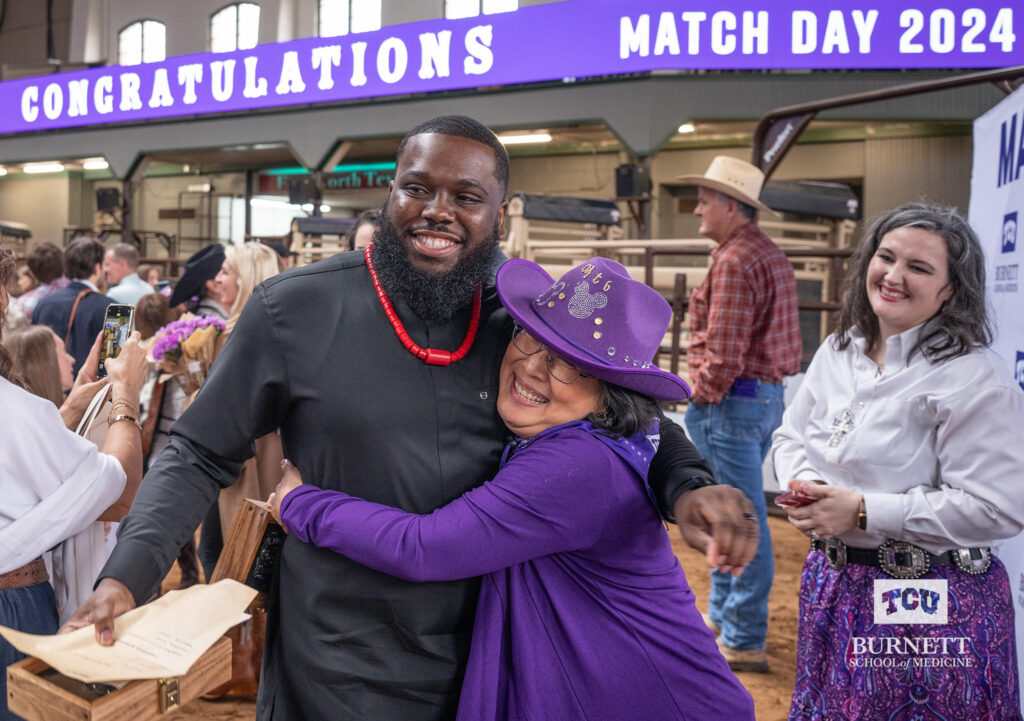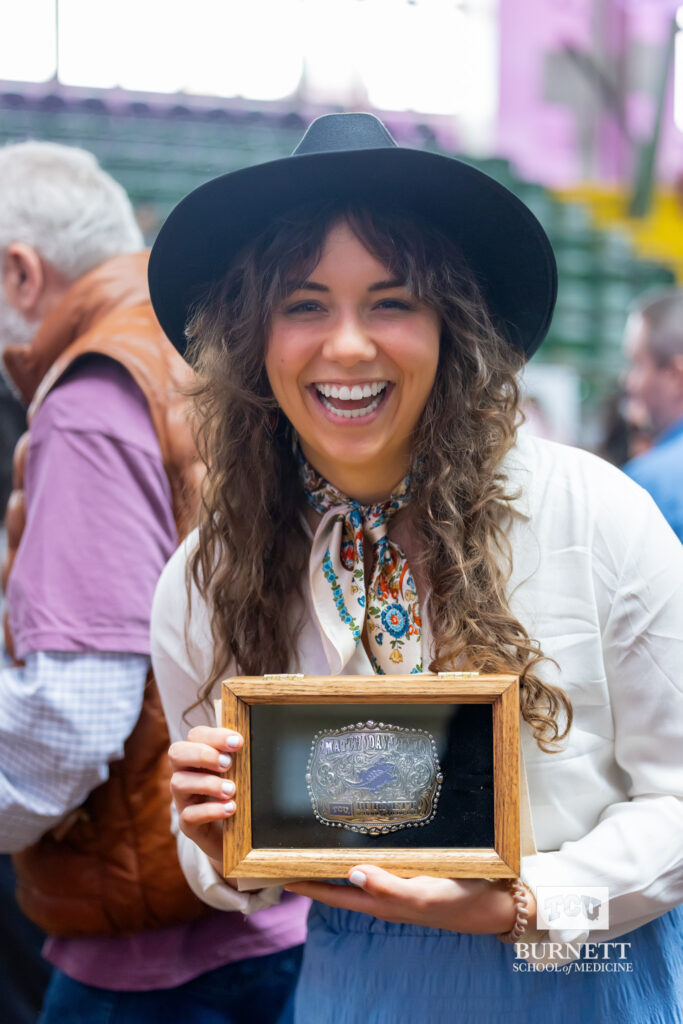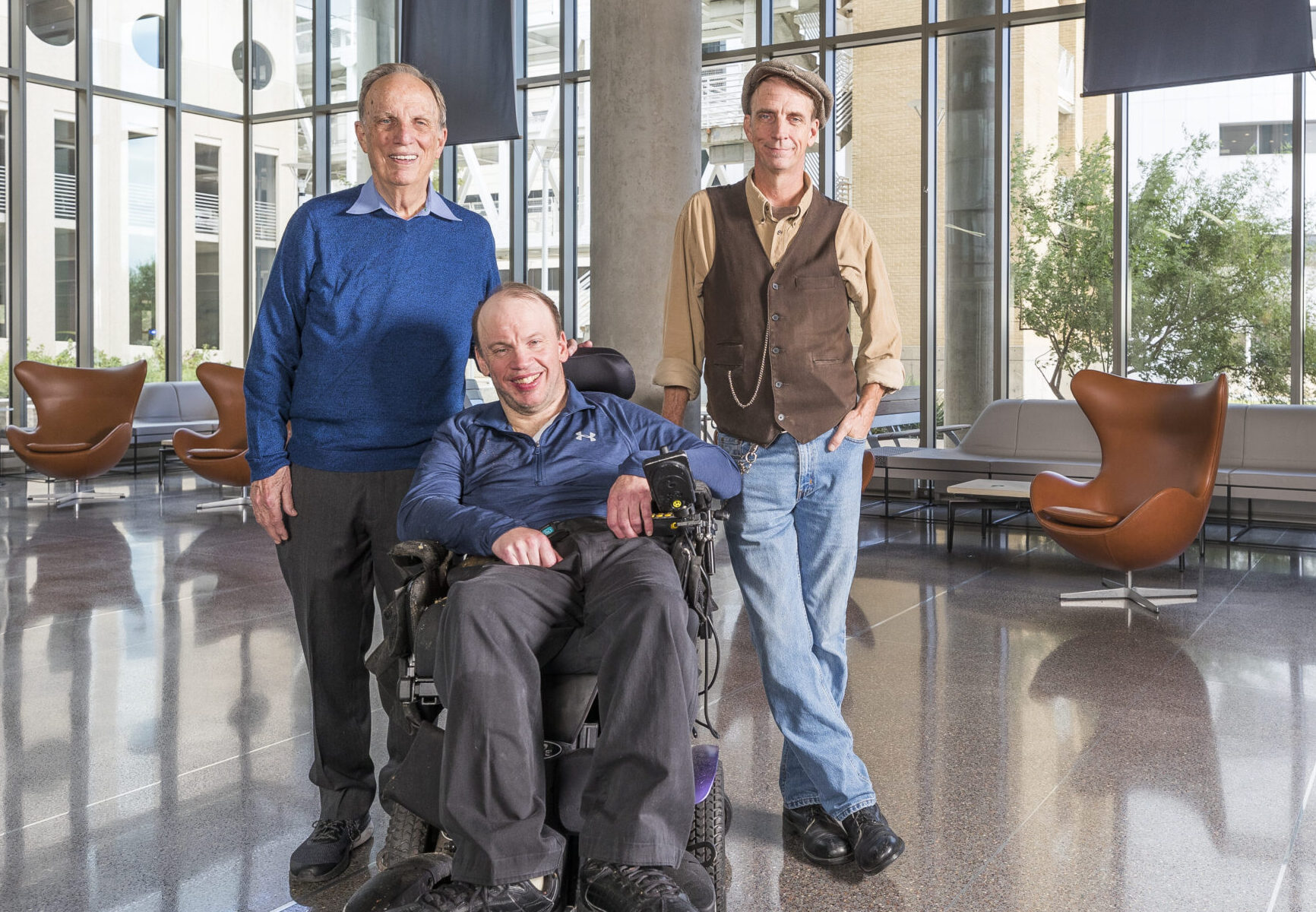NEW ORLEANS – A procession of performers in elaborate and colorful costumes heralded the beginning of the Student National Medical Association’s conference with rhythmic beats and song.
Calm and collected, Antonio Igbokidi, MS-4, at the Anne Burnett Marion School of Medicine at Texas Christian University, gazed at the scene proud of what he and his fellow SNMA members had accomplished.
“It’s really a blessing and really a privilege,” said Igbokidi, who served as SNMA Chair of the Board of Directors for the past academic year. “Learning about everything that really has to do with making this organization thrive has been a privilege I won’t soon forget.”
Sharing this moment with Igobikdi, who graduates in May, is special, said Founding Dean Stuart D. Flynn, M.D., who was one of the keynote speakers at the conference’s Opening Ceremony, which was sponsored by the medical school.
“I feel so grateful that he picked our medical school. He’s been a leader for his class. He’s been a leader for our medical school,” Dean Flynn said. “He’s going to leave a wonderful legacy of this is how you do it as a medical student not just at our medical school but at any medical school across the country.”
More than 4,500 medical students and medical professionals came together in New Orleans in late March to take part in SNMA’s 60th Annual Medical Education Conference (AMEC). SNMA is the nation’s oldest and largest independent, student-run organization focused on the needs and concerns of students of color who are underrepresented in medicine. Boasting more than 190 chapters across the nation including one at the Burnett School of Medicine, the SNMA membership includes more than 7,000 medical students, pre-medical students, and physicians.
Igbokidi was not the only Burnett School of Medicine student leaving their imprint at the conference. Several medical students were a part of panel discussions in different medical specialties alongside physicians.
Rebecca Sobolewski, MS-4 at Burnett School of Medicine at TCU and SNMA Vice Chair of Convention Planning, helped organize and plan this year’s conference, which had more than 300 speakers and more than 100 volunteers.
“We had a lot of involvement at AMEC this year which is extremely exciting,” said Sobolewski, who begins her Emergency Medicine residency at Vanderbilt University Medical Center in Nashville this summer.
These young people are the future of medicine, Dean Flynn said.
“This is the next generation of physicians from an underrepresented population,” Dean Flynn said. “It’s special to be able to come here and have the opportunity to greet them, thank them and just to challenge them a little bit to go out and make medicine better.”
The Burnett School of Medicine’s mission is to create Empathetic Scholars® that can walk in a patient’s shoes and have a capacity to care a community and patients from diverse backgrounds, beliefs and identities. The medical school’s involvement in the AMEC conference is one way to encourage more underrepresented groups to go into health care.
“We have to increase that component of health care,” Dean Flynn said. “It has dire consequences when you don’t. I love seeing these students and in the coming years I would like to see more of them.”
The conference’s theme, “From Pressure to Purpose: Illuminating the Path to Excellence,” reflected SNMA’s mission. The organization strives to ensure that medical education and services are culturally sensitive to the needs of diverse populations and to increasing the number of African American, Latino, and other students of color entering and completing medical school.
“We are important as it pertains to increasing the number of clinically competent and socially competent physicians,” Igobikidi said.
As SNMA chair for the 2023-2024 academic year, Igbokidi oversaw the organization’s 14,000 members and learned about the day-to-day operations.
“It’s really surreal and it fills your cup up,” said Igobokidi, who will begin a Psychiatry residency at UCLA Semel Institute for Neuroscience this summer. “It really makes you feel more engaged and more galvanized.”
